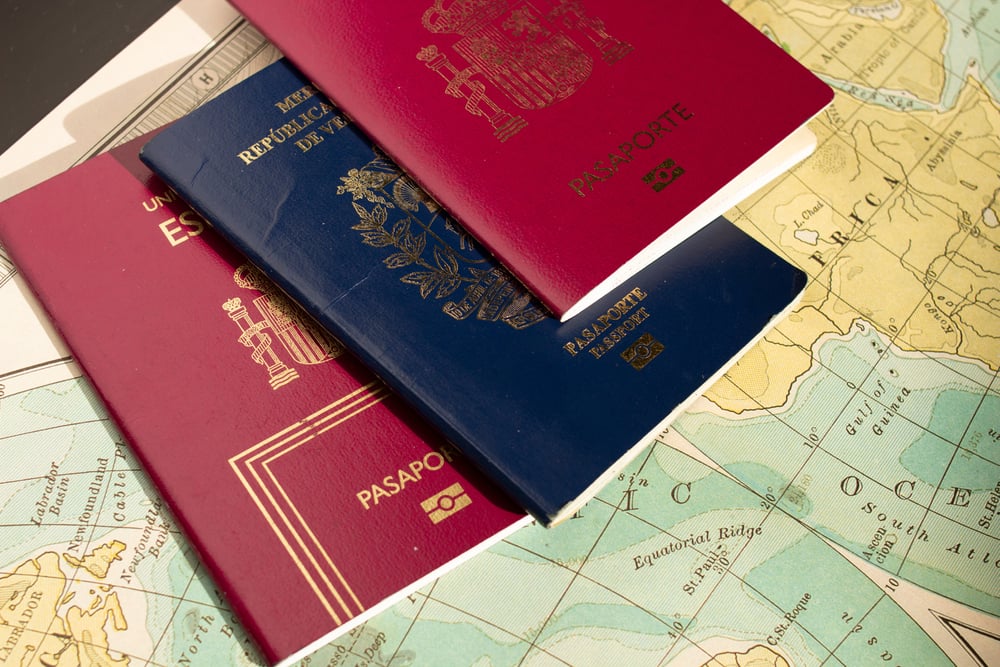Discover the hidden challenges and surprises of living your golden years overseas.

Retiring abroad can be a thrilling adventure filled with new experiences, beautiful scenery, and the possibility of stretching your retirement dollars further. The appeal of immersing yourself in a different culture and breaking free from the familiar can be exhilarating. For many seniors, the idea of sipping coffee in a European plaza or waking up near a tropical beach feels like the perfect reward for a lifetime of hard work and responsibility.
But while brochures paint a picture of carefree living, the realities of international retirement are often more nuanced. Daily life in a foreign country comes with a unique set of hurdles, and not all of them are obvious upfront. Beyond the excitement, you’ll encounter cultural gaps, logistical challenges, and emotional adjustments that can take time and patience. Here are ten things many Americans don’t hear about when they start dreaming of retirement abroad—and why knowing them in advance can help you plan a smoother transition.
1. Health Insurance Isn’t Always Easy

One of the biggest surprises for retirees moving abroad is how different the healthcare system can be from what they’re used to. While some countries offer affordable, even exceptional care, that access is not always automatic. In many places, foreigners are required to purchase private health insurance, and those plans may not cover pre-existing conditions or chronic illnesses, according to Aleixs Konovodoff at Wise.com. In more rural regions, medical facilities may be limited in both services and equipment, which can pose serious risks in an emergency.
Another challenge is navigating medical appointments in a language that’s not your own. Communicating symptoms, understanding prescriptions, or discussing treatment plans can feel overwhelming if your language skills are still developing. This makes it essential to research the healthcare landscape in your chosen country ahead of time. Evaluate your health insurance options thoroughly and be realistic about your ongoing medical needs—because peace of mind is just as important as sunshine.
2. Banking Can Be a Challenge

Managing your finances from abroad involves more than setting up online banking. Opening a local bank account can be a complex, time-consuming process, often requiring extensive documentation, residency proof, and even local references. U.S. citizens also face reporting obligations under FATCA, which means your foreign accounts must be reported to the IRS. Not all banks are equipped to handle this process smoothly for Americans, and you may encounter resistance or confusion from foreign banking staff.
Because of these complications, many retirees choose to keep at least part of their financial assets in the U.S. Maintaining access to familiar banking systems can simplify things like pension deposits, social security payments, and tax filings. It’s also smart to explore low-fee currency exchange and money transfer options, as international fees can accumulate quickly, as stated by Jon Marcus at AARP. A solid banking strategy can mean the difference between financial freedom and frequent frustration.
3. Language Barriers Affect Everyday Life

Even if you’re excited to learn a new language, there’s often a steep learning curve when you’re actually living in a foreign country. Everyday activities like grocery shopping, making appointments, or reading utility bills can suddenly feel daunting. Public announcements, signage, and official paperwork may be difficult to understand, and relying on translation apps can only get you so far. What feels like a minor inconvenience during travel can become a persistent challenge when it’s part of your daily life.
That said, immersing yourself in a new language can be deeply rewarding, especially when it leads to meaningful interactions with locals. Taking language classes before and after your move can ease your transition and build confidence. You’ll still make mistakes, but your efforts are often appreciated, as shared by writers at Wealth Management. Over time, the language barrier may become a bridge to deeper connection—but only if you approach it with patience, humility, and a willingness to learn.
4. Expat Communities Are Hit or Miss

One of the best ways to ease the transition into a new country is by finding an expat community. These groups can offer emotional support, local advice, and the comfort of shared experiences. However, not every destination has an active or organized expat network. Some places boast vibrant expat hubs with regular social gatherings and online forums, while others have only a scattered few, making it harder to build a sense of community.
Even in well-established groups, your experience may vary. Age differences, lifestyle preferences, and personalities all play a role in how well you connect. You might find yourself surrounded by expats whose idea of retirement differs from yours entirely. It’s wise to research the size and nature of the expat presence in your destination and consider making initial visits to attend meetups or join groups before committing to a long-term move.
5. Local Friendships Take Time to Build

While the idea of making local friends can be appealing, the reality is often more complicated. Cultural norms, language differences, and social dynamics may make it harder to connect with locals on a deeper level. In many cultures, relationships are built slowly over time and through shared experiences, rather than quick conversations or casual encounters. You may find that neighbors are polite but reserved, or that invitations to social events are few and far between in the beginning.
Building meaningful friendships requires intention, patience, and often a willingness to step out of your comfort zone. Joining hobby groups, attending cultural events, or volunteering in your community can help you integrate and earn the trust of those around you. Over time, these efforts often pay off—but it’s important to go in with realistic expectations and a sincere interest in understanding the local way of life.
6. Culture Shock Is Real and Lingering

Many retirees move abroad with the expectation that they’ll quickly adapt to a new lifestyle, but culture shock often hits harder than anticipated. After the initial excitement fades, you may find yourself frustrated by differences in punctuality, customer service, or social norms. Tasks that once felt simple—like renewing a driver’s license or finding a plumber—can become disproportionately stressful in an unfamiliar system.
The emotional impact of culture shock can linger for months or even years. Feelings of homesickness, loneliness, or regret may arise, even in the most beautiful settings. Developing coping strategies like maintaining routines, building support networks, and allowing yourself time to adjust can help ease the transition. The more you learn to embrace differences rather than resist them, the more satisfying your overseas life can become.
7. Visas and Residency Requirements Can Be Complicated

Securing a long-term visa isn’t always as straightforward as it seems. Each country has its own rules about who qualifies for residency, and requirements can include proof of income, health insurance, background checks, and regular renewals. Some countries are more welcoming to retirees, while others have stricter criteria that change frequently and without much notice.
To navigate this maze, it helps to consult with immigration professionals or relocation consultants who understand the specifics of your chosen country. Staying informed and maintaining copies of all critical paperwork is essential, especially in places where bureaucracy can be slow or inconsistent. The peace of knowing your residency is secure can make a tremendous difference in your overall sense of stability abroad.
8. Taxes Don’t Go Away

A common misconception is that moving overseas frees you from U.S. tax obligations, but unfortunately, that’s not the case. American citizens are required to file a federal tax return no matter where they live, and if you earn income abroad, you may be subject to foreign taxes as well. Navigating this dual system can be complicated, especially if you have investments, rental properties, or pensions involved.
Fortunately, there are tax treaties and exclusions—like the Foreign Earned Income Exclusion and Foreign Tax Credit—that can help minimize double taxation. However, the paperwork can be complex, and mistakes can be costly. It’s strongly recommended to work with a tax advisor who specializes in expat tax law to ensure you’re compliant and making the most of any available benefits.
9. You May Miss the U.S. More Than Expected

The idea of leaving behind American life might sound like a welcome escape, but the reality is that nostalgia has a way of sneaking in. You might start to miss conveniences you never thought about before—fast customer service, certain food brands, or the ease of communicating in your native language. Holidays and traditions can feel especially poignant when you’re far from familiar surroundings and the people you love.
Staying emotionally connected to home can be just as important as adjusting to your new environment. Scheduling regular visits back to the U.S., joining American expat groups, or celebrating holidays with familiar customs can provide comfort and reduce the sense of cultural distance. It’s okay to miss the U.S.—what matters is finding ways to blend the old with the new in a way that feels meaningful to you.
10. Returning Home Isn’t Always Simple

You might think that if things don’t work out, you can simply pack up and return to the U.S., but repatriation often comes with its own set of challenges. Reestablishing healthcare coverage, securing housing, and reconnecting with a social circle can all take time. Some retirees find themselves feeling like strangers in their own homeland, experiencing a kind of reverse culture shock as they readjust.
Additionally, if you’ve sold your home or transferred your assets abroad, reentry can be expensive and logistically difficult. Planning ahead for the possibility of returning is a smart move—even if you don’t think you’ll need to. Keeping some ties to the U.S., like a mailing address, bank account, or insurance policy, can give you options and peace of mind should your overseas retirement take a different turn than expected.
